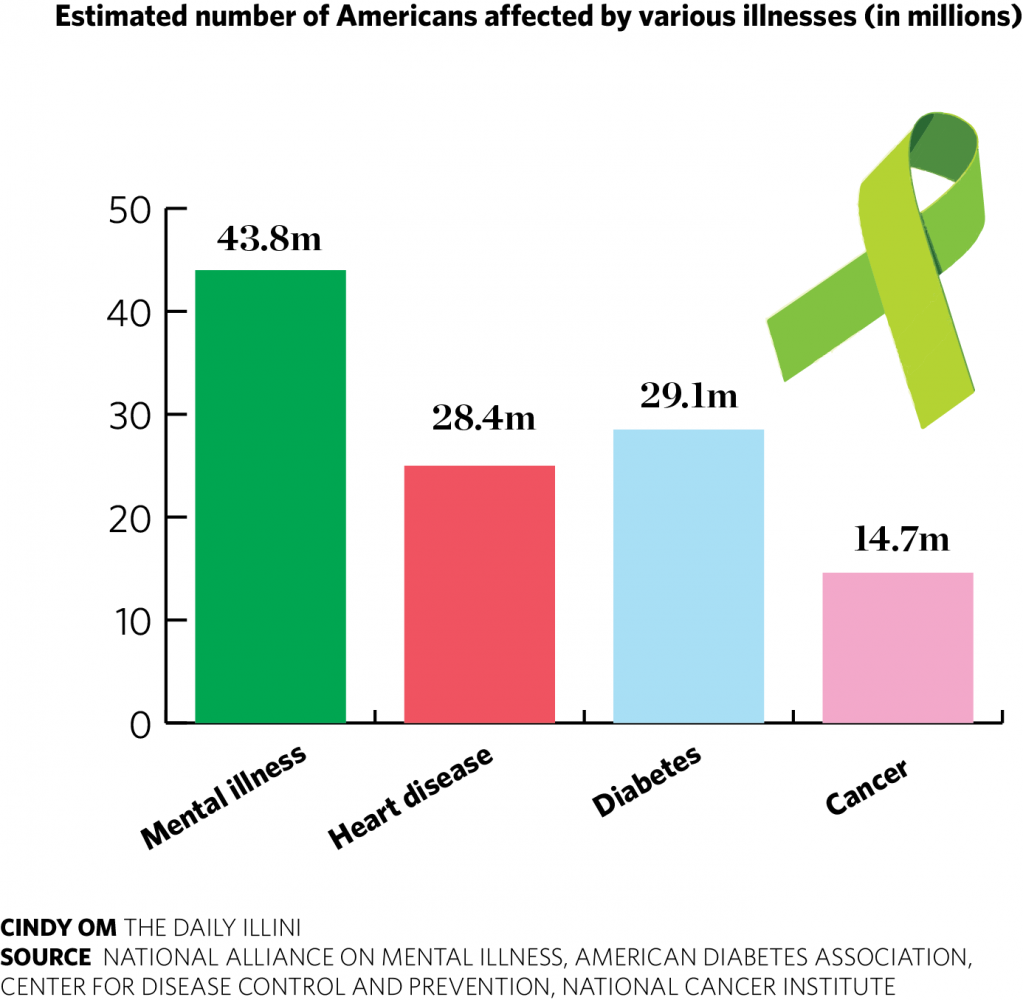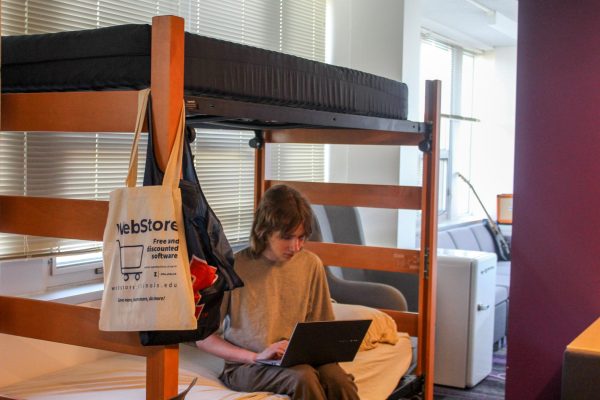Campus resources aim to ensure student mental health
May 1, 2017
As the end of the semester draws near, campus resources are receiving an influx of students in need of mental health support and are pushing for an increase in awareness of their services.
Nicole Evans, assistant director of outreach and prevention at the University Counseling Center, said there has been an increase in demand for the center’s services toward the end of the semester. The Counseling Center’s goal is to ensure that students remain safe.
The Counseling Center has 26 full-time staff members and some contract staff. Evans said that the center sometimes encounters barriers to get more resources due to issues such as limited office space and the state budget impasse.
“I think that we do the best with what we have, and if all of the budget constraints were taken away and we could have more counselors, that would be excellent,” Evans said.
Students can also go to McKinley Health Center for mental health care. According to Robert Woodward, medical director at McKinley, mental health appointments are typically scheduled two to four weeks in advance.
Get The Daily Illini in your inbox!
Woodward wrote in an email that McKinley also has a stress education specialist available by appointment, and peer educators that hold outreach programs for students with stress issues. McKinley’s Health Education Unit will also be handing out free stress relief packets around campus starting May 1.
Natalie O’Callaghan, College of Education senator and chair of mental health sub-committee of the Illinois Student Government, said that the student government is hoping to increase awareness and access to mental health resources on campus.
O’Callaghan said that last semester the mental health sub-committee tried to close the gap between the mental health resources offered on campus and how the student government can better support them. This semester they are focusing on taking action.
One of the larger events is a mental health awareness week, O’Callaghan said. However, many of the activities planned for the week fell through due to planning issues.
“It showed me that it is still something that people are still kind of reticent to talk about, and hesitant to act upon,” O’Callaghan said. “This is the first year of the standing sub-committee, so we’re still going through a lot of growth and the challenges are learning opportunities for how we can better coordinate things.”
Evans said the Counseling Center is trying to keep students safe by reaching out in different ways.
“We recently started posting on Reddit,” Evans said. “So if a student posts something about how they’re not feeling great about their situation, and they’re depressed or anxious, we’ve been reaching out to students that way.”
The Counseling Center also plans on starting a social media campaign about finishing the semester strong. Evans said they are trying to help students take care of themselves when they feel overwhelmed.
“We have information about self-care when you’re really busy and your schedule is hectic, and things like sleeping and eating fall to the end of your priority list,” Evans said.
The Counseling Center also offers tips to students on how to talk to a friend if they notice changes that are concerning.
There are several ways to make an appointment at the Counseling Center. The most conventional way is to make a same-day individual appointment over the phone. Their phone lines open at 7:50 a.m.
The Counseling Center also have triage teams that provide short sessions lasting around 30 to 45 minutes, so that students can receive more urgent help until they can get individual treatment.
“What a lot of students don’t realize is, when they’re having a mental health emergency, they’re welcome to come in whenever we’re open,” Evans said. “We’ll make sure that they get seen when things are really stressful for them and they needed to talk to somebody right away.”






